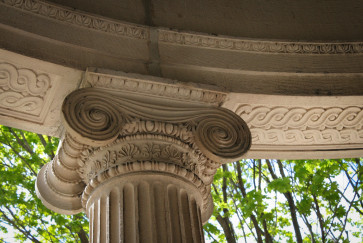The department of African American studies at Northwestern University (AfAm) is celebrating its 50th anniversary with a daylong in-person and virtual event series on Friday, May 20 featuring talks, panel discussions, and a dinner reception and award ceremony that are open to the public, with registration.
African American studies was created in 1971-1972 after Black students demanded that the University’s administration take a series of actions to improve Black students’ experiences on campus, one of which eventually became the codification of African American studies as a department-level discipline.
Today, the department’s origin story and enduring scholarship inform America’s ongoing struggle to reckon with its legacies of racism and discrimination, while moving society forward at a contentious moment in which many are seeking to bury the histories and dampen the consciousness building that departments like AfAm have contributed to over the past half century. As such, AfAm remains as vital as ever, and continues to grow as it celebrates 50 years.
“The knowledge that we've created is now being debated,” said Mary Pattillo, the Harold Washington Professor of Sociology and African American Studies and chair of AfAm. “But we wouldn’t be having these debates if that knowledge hadn’t allowed us to recognize that our country is built on a fabric that includes slavery, the non-personhood of Black people and the theft of Native lands.”
Student protests succeed in bringing about change
In 1968, Northwestern University undergraduate students occupied the bursar’s office from May 3-4 and successfully demanded that the administration take a series of actions directed at moving Northwestern towards equality for all students around the University’s recruiting, admissions and student residence policies and academic offerings.
These included integrating dormitories; creating residential units for Black students on campus and an activity space for Black social events (which became the Black House); the proactive recruitment of Black students; revised financial aid policies; and more academic programming related to Black studies.
Since its creation three years after the initial agreement, the department’s scholarship has focused on history, the social sciences and the humanities. Though it is called African American studies, AfAm’s scholarship encompasses Caribbean, African and African diaspora studies relevant to Black people around the world, Pattillo said.
“Although Black student protests created our department, the knowledge that we produce is not only important for Black student development, it’s important for all students, because these are world histories,” she added. “Knowledge about Black peoples worldwide is integral to a liberal arts education.”
Enduring impact
As decades passed, the department benefited from the visionary leadership of scholars like Leon Forrest, a novelist and chronicler of Black experiences in Chicago. It added a major in 1982 and a Ph.D. program in 2006, and today houses 14 faculty members.
The department also has spurred the careers of hundreds of living alumni in dozens of fields: They include lawyers, historians, entrepreneurs, doctors, writers, professors, teachers and those in many other professions.
Their collective contribution to society represents a remarkable chain reaction of impact from the vision of the Black students and faculty at Northwestern in the early 1970s who advocated for the creation of the department. It’s a testament to the power of protest.
“The department is thriving,” Pattillo said. “We have world-renowned faculty, great resources and wonderful Ph.D. students and undergraduates. So, the vision of the people who advocated for the department’s creation — for a Black studies department that is focused on the liberation of Black folks — has been realized. But in other areas, the struggle continues.”
Progress must still be made, she said, when it comes to increasing the number of Black faculty and undergraduates at Northwestern, supporting those who are first-gen and low-income students, and leveraging the department’s scholarship to transform both the local community and the world for the better.
That’s work that the department and its alumni will continue to carry forward in the years ahead. However, on May 20, the tenor of the day will be about celebrating the work of the past 50 years and its impact. Dozens of alumni plan to return to campus for the event.
“We want to have fun at the AfAm 50th,” Pattillo said. “We mean to really celebrate: to dance at the reception; to tell funny stories; and to revel in Black life because that's a part of Black studies as well.”

